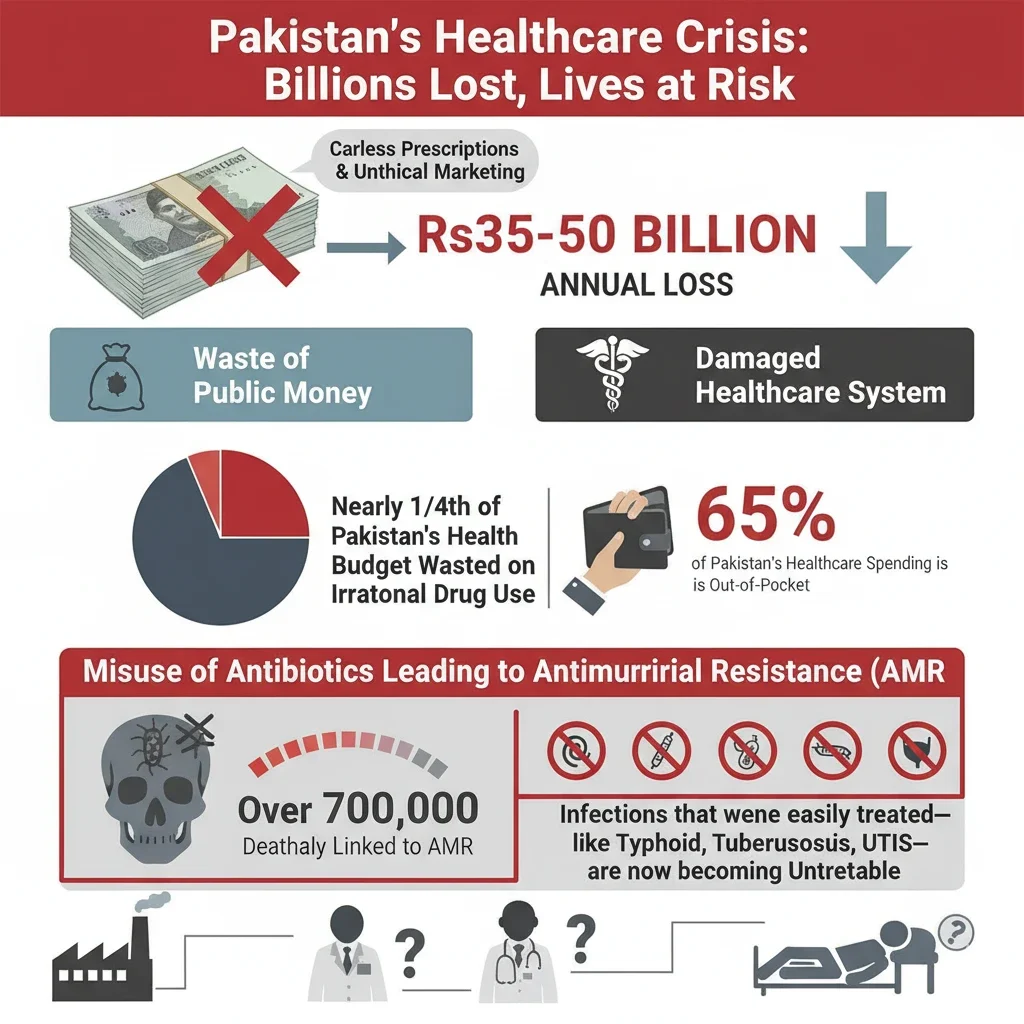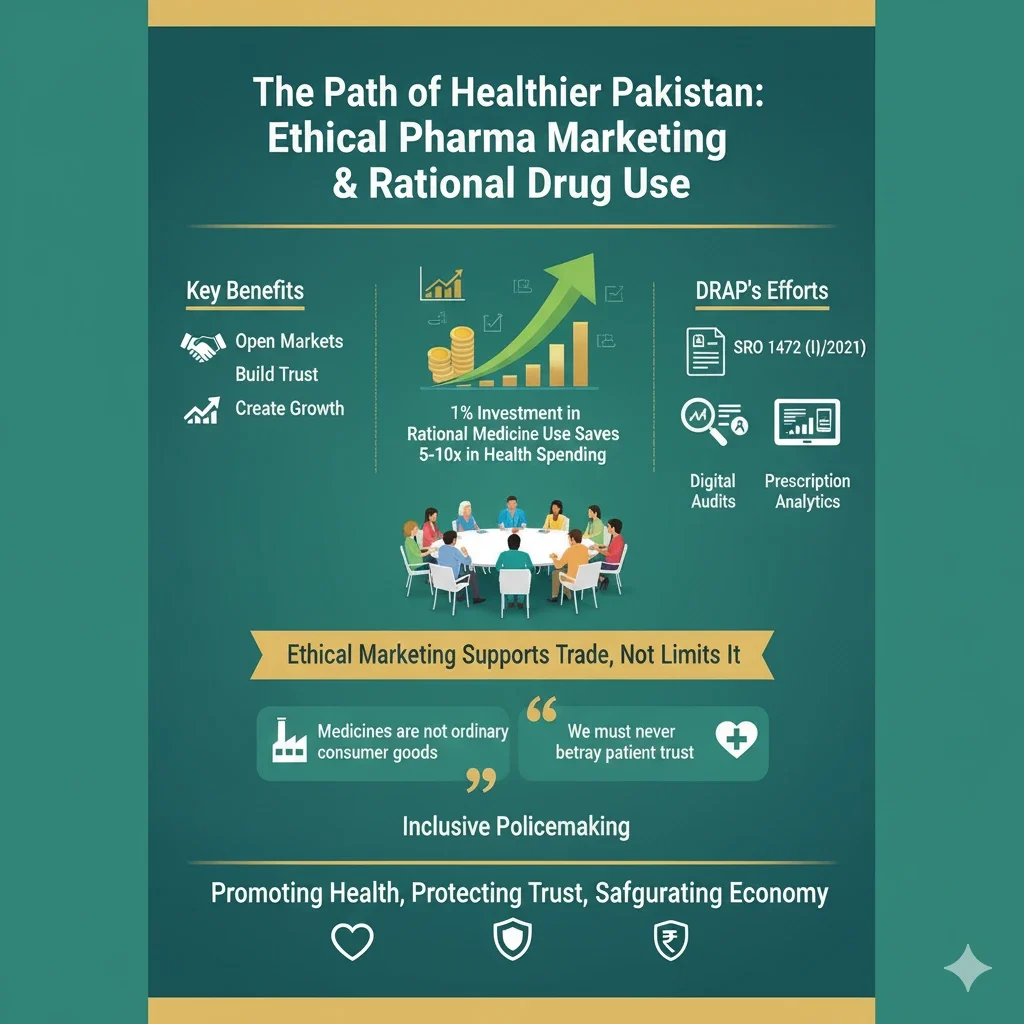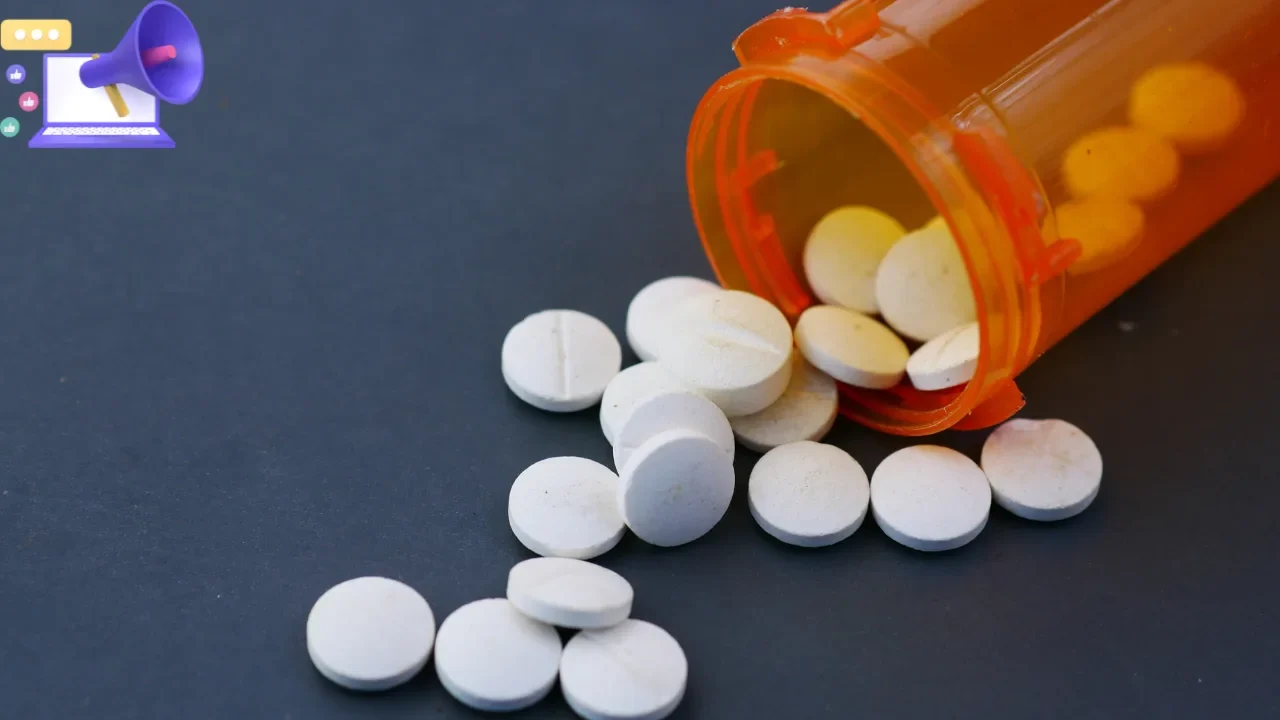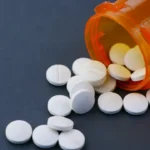By Hasnain Ali
When a simple fever or infection becomes untreatable, it’s no longer just a medical problem—it’s a national issue. That’s the warning Pakistan’s top drug regulator shared at a major healthcare conference in Karachi, revealing that the country is losing between Rs35 billion and Rs50 billion every year because of careless drug prescriptions and unethical drug marketing in Pakistan by some pharmaceutical companies.
Officials from the Drug Regulatory Authority of Pakistan (DRAP) said these practices are not only wasting public money but also damaging the country’s healthcare system and making common infections harder to treat.
Pakistan’s Alarming Healthcare Losses
At the Health Asia 2025 Conference, DRAP Chief Executive Officer Dr. Obaidullah explained that nearly one-fourth of Pakistan’s health budget is wasted on irrational drug use.
“Sixty-five percent of Pakistan’s healthcare spending is out of pocket, and yet a large part of it goes to unnecessary prescriptions. This is both an ethical and economic failure,” he said.
He pointed out that more than half of the medicines sold around the world are either prescribed or promoted inappropriately.
In Pakistan, misuse of antibiotics has become especially dangerous, leading to over 700,000 deaths every year linked to antimicrobial resistance (AMR).
“Infections that were once easily treated—like typhoid, tuberculosis, and urinary tract infections—are now becoming resistant to nearly all available drugs,” Dr. Obaidullah warned.

Impact of Irrational Prescriptions and Unethical Marketing
According to him, this is not just about poor medical decisions—it’s also about unethical marketing. When companies push doctors to prescribe drugs for profit, medicines get overused, and their effectiveness weakens.
“Drugs like ampicillin, ciprofloxacin, and cefixime, which once ruled the market, are now losing ground because of resistance,” he said. “Ethical marketing should be seen as something that supports trade, not something that limits it.”
Ethical Marketing as a Key to Healthcare Reform
Dr. Obaidullah also cited research from the World Health Organization, the OECD, and the World Bank showing that every one percent investment in rational medicine use saves five to ten times more in health spending.
“Ethics open markets, build trust, and create growth,” he said. “Regulation supports business when following the law becomes part of one’s conscience.”
He explained that Pakistan already has a legal framework—SRO 1472 (I)/2021—that guides ethical drug promotion. DRAP is also introducing digital audits and prescription analytics to make marketing and prescribing practices more transparent.
“Our shared national goal should be to promote health, protect trust, and safeguard our economy through responsible marketing,” he said.
Industry Leaders Call for Responsible Pharma Practices
Health Asia organizer Dr. Zakiuddin Ahmed said the conference aimed to bring together government regulators, the pharmaceutical industry, and healthcare professionals to encourage cooperation.
“Pharma is a major player in healthcare,” he said. “We want to promote open dialogue and practical solutions that work for both patients and businesses.”
PharmEvo Managing Director Haroon Qassim spoke about the moral duty of doctors and companies to protect public trust.
“People visit hospitals when they are suffering, not because they want to. We must never betray that trust,” he said. He also mentioned that global technology companies like Google and Amazon are entering healthcare with a focus on ethical practices and social responsibility.
Tahir Azam, Chairman of the Pakistan Pharmaceutical Manufacturers Association (PPMA), agreed that ethics are central to the credibility of the pharmaceutical industry. “Medicines are not ordinary consumer goods,” he said. “Our marketing must always put the patient first.”

The Road Ahead for Pakistan’s Health Sector
The discussion—titled “Redefining Pharma Marketing: From Data Insights to Patient Impact”—was part of the 22nd Health Asia International Exhibition and Conference, organized jointly by Ecommerce Gateway Pakistan, DRAP, and PPMA.
For Pakistan’s health sector, the message was clear: curing diseases is important, but curing the system that allows unethical practices might be even more urgent.
Author Profile
-
Hasnain Ali is a Pakistani journalist who writes on business, agriculture, and telecom issues with a focus on policy, innovation, and market trends.
His reporting highlights how economic shifts, digital connectivity, and agricultural reforms shape everyday life across Pakistan.
Known for his clear analysis and grounded storytelling, Hasnain aims to make complex economic topics accessible to general readers.





